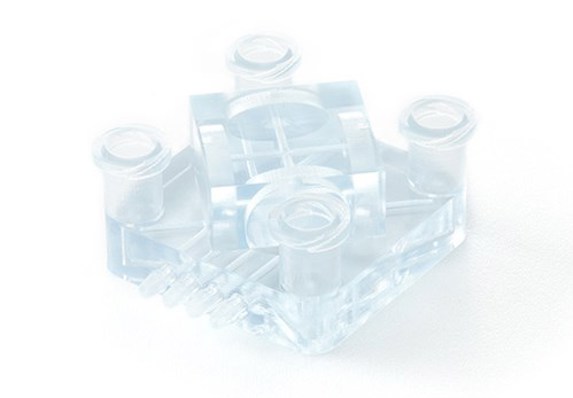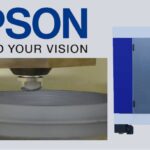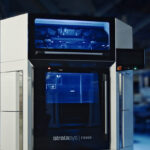ASIA ELECTRONICS INDUSTRYYOUR WINDOW TO SMART MANUFACTURING
Protolabs to Boost 3D Options With New Hybrid Tech
Digital manufacturing leader Protolabs has expanded its 3D printing capabilities with the launch of an advanced photopolymers technology. Specifically, the Axtra3D Hybrid PhotoSynthesis (HPS) offers highly repeatable and finely detailed 3D printed parts at accelerated speeds.
Furthermore, HPS uses both a precision laser and digital light processing (DLP) system to simultaneously image internal and external part structures. Thus, a dual 3D printing approach that overcomes traditional limitations.
Supports Broader Strategies
HPS complements Protolabs’ current Carbon digital light synthesis (DLS) printers for 3D printing projects. Most importantly, those that require stronger mechanical properties.

Both Carbon DLS and HPS feature near-isotropic parts and smooth surface finishes. Nonetheless, HPS technology also offers exceptionally high resolution when compared to other 3D printing processes.
The launch of HPS supports the broader Protolabs strategies to serve more customer needs and continue to expand into production use cases. Common HPS applications include production-grade parts with excellent throughput and parts requiring high-accuracy features for testing and validation. In addition, it also covers cosmetic prototypes requiring glass-like surface finishes.
“We (want) to establish additive manufacturing as a technology that can take companies from prototyping to production,” said Ryan Kees, Protolabs 3D printing global product director.
In addition, Kees said, “To help product developers, designers, and engineers do that, Hybrid PhotoSynthesis is another vital production option in our growing toolbox of 3D printing capabilities.”
Currently, available HPS materials include Tough Black of Loctite Henkel, an engineering-grade resin with high strength. It also has good impact resistance and excellent surface finish. In addition, another HPS material available include the Ceramic-filled of BASF 3280. This is a material often used for tooling and molding due to its high stiffness.
Both materials expand Protolabs’ advanced photopolymer library, adding to the materials already offered for Carbon DLS.
12 September 2024




